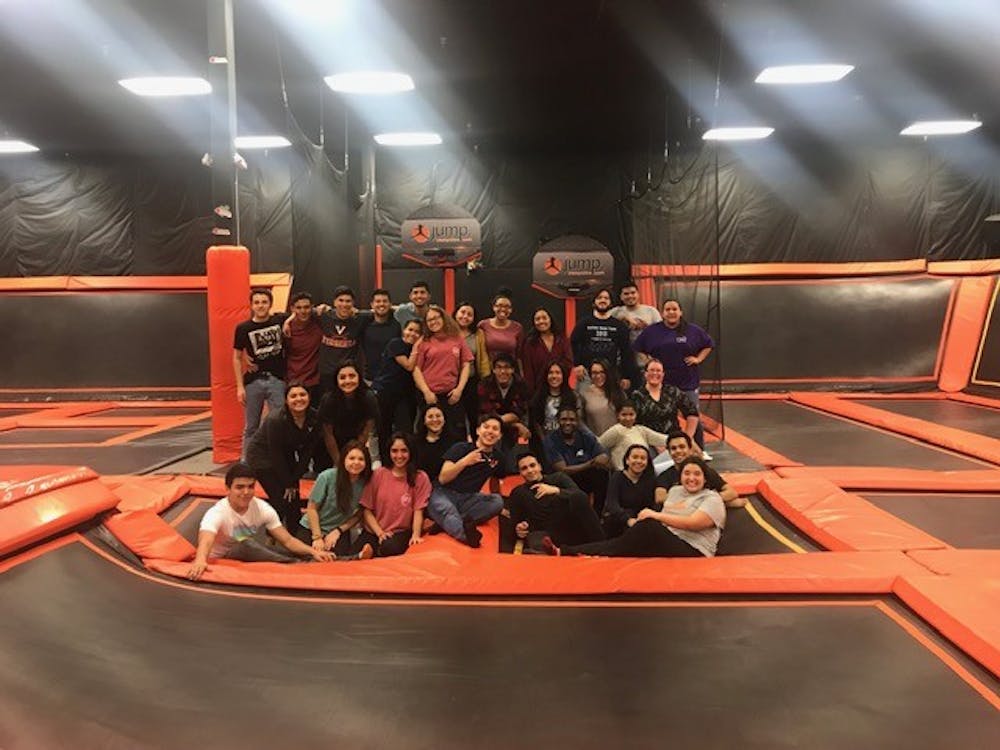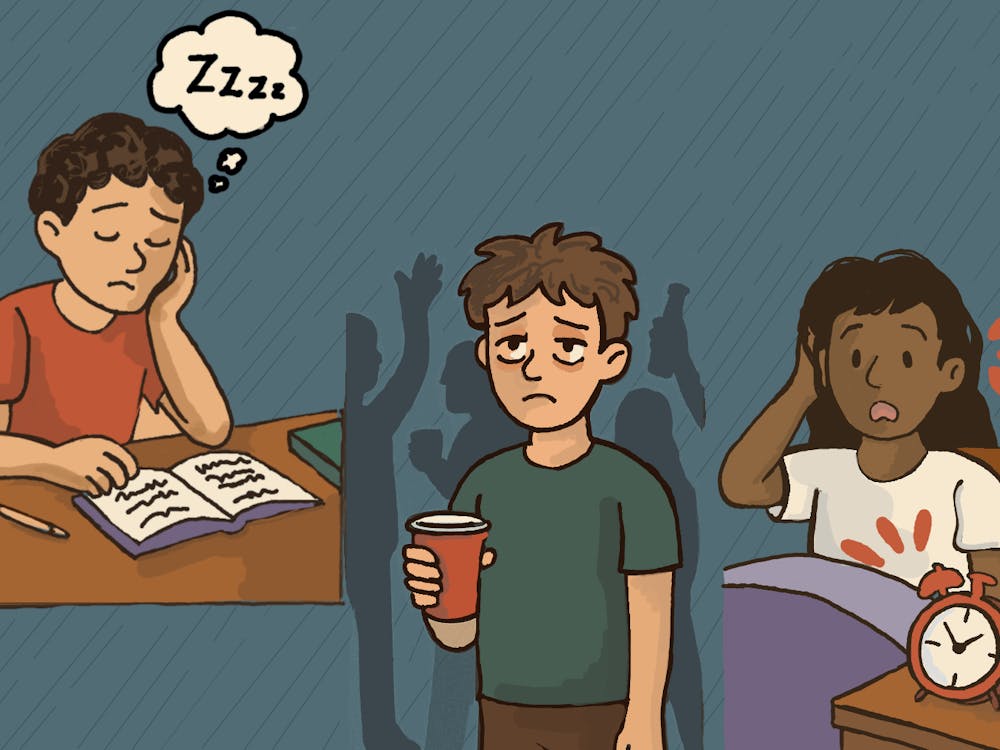For second-year College student Frank Valdez, leaving his home in Houston and coming to the University was very difficult. He did not know anyone, did not feel worthy of coming to a top-tier college institution and faced unexpected challenges when a close member of his family passed away during his first semester. He was over 1,200 miles from home, and it was hard for Charlottesville to feel like one — that is, until Valdez became a member of the Latinx Peer Mentoring Program. Through this program, he began to find his place in the University.
Less than 18 months later, Valdez sits as one of four members on the Latinx PMP’s executive board, a position that allows him to help other Latinx students transition to their life at the University and find a place within its student body.
The Latinx PMP was founded in 1999 by former Assistant Dean Pablo Davis as an organization under the umbrella of Multicultural Student Services, which is currently overseen by Vicki Gist, assistant dean of students and the director of Multicultural Student Services.
“The overall purpose of the program is to help new students adjust to U.Va.,” Gist said in an email to The Cavalier Daily. “PMP helps students meet people and build community, find academic guidance and personal support and learn about resources and get involved in the U.Va. community.”
Each summer, the Latinx PMP reaches out via email to both incoming first-years and transfer students who identified as Latinx on their application. The program then works to pair them with current Latinx students at the University who serve as mentors for these new students. Throughout the summer, mentors answers their mentees’ questions, provide advice on what classes to take and professors to seek and generally help them prepare for their life here on Grounds.
Second-year College student Hannah Fernandez is a current mentor in the program but remembers how much she loved the program reaching out to her the summer before her first year.
“One thing I really love about the peer mentoring program is it starts before your journey even starts here at U.Va.,” Fernandez said. “They reach out to you in the summer … and they talk to you and get you involved in Hispanic-Latinx CIOs on Grounds and anything you might be interested in. I think that’s a great way to reach out to those students and might feel a little scared or lost coming in.”
Once these students arrive on Grounds, the functions of the PMP expand as they host their own events during Welcome Week to gauge student interest in the program, after which students decide whether to officially join the program. For those who choose to participate, they are paired with a mentor and divided into “familia” groups.
Each familia is led by an executive board member, and the diverse members help to bring the program’s participants together. Today, there are 71 mentor-mentee pairings in the program divided among four familia groups. For each familia, the program aims to have mentors from different years, majors, interests and backgrounds.
“We know that not all of the mentees are going to be very outgoing, so putting them in a family that is more diverse and in that small setting, it’s a less intimidating space,” Valdez said. “It makes our community very tight. Coming in I knew a lot of fourth-years from different majors and I came in undecided so I already had people from different majors that I knew to help me and that I could get advice from.”
Beyond the introduction to the University community that these diverse “familia” structures provide, the program also works to plan events for its mentors and mentees to help introduce them to both the various cultures of its members and to Charlottesville itself. Some of these events include “familia” dinners in the style of international potlucks, semi-formals coordinated with the Latinx Student Alliance and an hour of fun at Jump Cville — an event that was held Feb. 28.
But the relationship between mentor and mentee expands beyond acquiescing students’ pre-arrival fears and simply attending Latinx events together. PMP mentors also help their mentees feel less alone among the massive University population.
“My mentor checks in with me to make sure I’m okay,” third-year Education transfer student Valeria Gutierrez-Cruz said. “We sometimes go out to lunch to talk about school, so it influences my social aspect at U.Va. She actually cares about me and is always asking me, ‘Is there something I can do for you? Are you okay? How are your classes going?’”
Beyond the benefits the program provides to new students, it allows mentors the opportunity to share their experiences and what they’ve learned at the University with their mentees.
“You need to understand how other students have dealt with these experiences that you’re going to face,” third-year Batten student Brian Zuluaga said. “For me, that has been very important to actually share that knowledge and sort of to pass it down so students don’t have to struggle through the same experiences that I had to go through.”
As an executive member who has had the privilege to fill the role of both a mentor and mentee, the community aspect of PMP is something for which Valdez will always be thankful.
“I give a lot of credit to the Peer Mentoring Program for keeping me grounded, giving me a support system, a network, a family of people who care about me, who really want me to strive at this University,” Valdez said.







